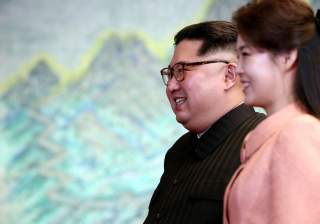We Need to Test Our Assumptions About North Korea
Only through a clear eyed approach to North Korea can we hope to develop strategies that will have resonance and traction and make the most of the opportunity that we may now be presented with.
[1] North Korea’s recent threats to pull out of the summit have only hardened these views in the minds of many.
[2] Even if the United States adheres to its promise of no economic aid until complete denuclearization is achieved, indications are that Xi Jinping agreed at Dalian that China would provide assistance during the process as long as an agreement was struck between the Trump and Kim.
[3] It is possible that this plan is what Kim had in mind, but it only works if the United States is on board. Kim’s recent threat to withdraw from the summit is likely the result of apparent U.S. backsliding on the terms of denuclearization. President Trump’s soothing words about a long-term process and respect for Kim Jong-un have been replaced by hardline statements by Secretary of State Mike Pompeo and National Security Advisor John Bolton, who have reiterated upfront CVID (along the lines of the Libya model) and expanding the definition of denuclearization to include North Korea’s chemical and biological weapons programs. To Kim, this likely looks like moving the goal posts which were likely established in his recent discussions with Pompeo. The Max Thunder exercise provided a convenient foil for North Korea to cry foul and try to get the United States to clearly articulate its requirements going into the summit.
Image: Reuters

